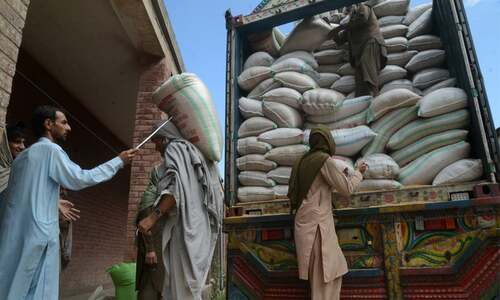
ISLAMABAD: Prime Minister Syed Yousuf Raza Gilani on Saturday urged the international institutions, world community and the people of Pakistan at home and abroad to extend full support and cooperation to the government in tackling the situation due to the devastating rains in Sindh.
Weeks of monsoon rains have killed 141 people and displaced more than 4 million in southern Sindh province.
Moreover, flash floods have caused widespread damage in 21 districts and destroyed crops over 1.7 million acres of land in Sindh, where hundreds of thousands of people are still suffering from the last year's devastating floods.
Addressing the nation on television and radio, he also appealed to the country's political and democratic forces to fully cooperate with the government in helping the distressed Pakistani brothers in Sindh by keeping their political differences aside.
He also mentioned President Asif Ali Zardari’s appeal to the international community through the United Nations and called upon the world institutions to help the rain-affected people.
“We believe that the international institutions and the world community by giving serious consideration to the President's appeal will take immediate steps on human grounds and speed up their efforts for the rehabilitation of affected people,” he maintained.
Gilani in his address highlighted the devastation caused by the heavy rains and said “the affected people, currently at relief camps under the open sky, are waiting for immediate assistance.”
Gilani has directed immediate provision of 10,000 tents to Provincial Disaster Management Authority for relief assistance in rain affected areas of Sindh out of the stock of Emergency Relief Cell, Cabinet Division.
He has also directed the Finance Division to sanction Rs.120 million as supplementary grant for the purpose of replenishing the stock of tents kept with the Cabinet Division for emergency purposes.
He said the scale of destruction caused by the rains was much higher than the initial estimates and the government also required international cooperation for actual assessment of the losses.
Pakistan is still haunted by memories of the 2010 floods which killed about 2,000 people and made 11 million homeless in one of the South Asian country's worst natural disasters.
One-fifth of Pakistan was then submerged in water -- an area the size of Italy -- and the government, which was widely accused of reacting too slowly, faced $10 billion in damages to infrastructure, irrigation systems, bridges, houses and roads.
More than a year later, over 800,000 families remain without permanent shelter, according to aid group Oxfam, and more than a million people need food assistance, mostly in Sindh.
The recent rains in Sindh are estimated to have destroyed up to 13 per cent of the total cotton crop, government and textile industry officials said on Friday. Agriculture is the mainstay of Pakistan's fragile economy and cotton and textiles account for more than 50 percent of the country's total exports.














































Dear visitor, the comments section is undergoing an overhaul and will return soon.